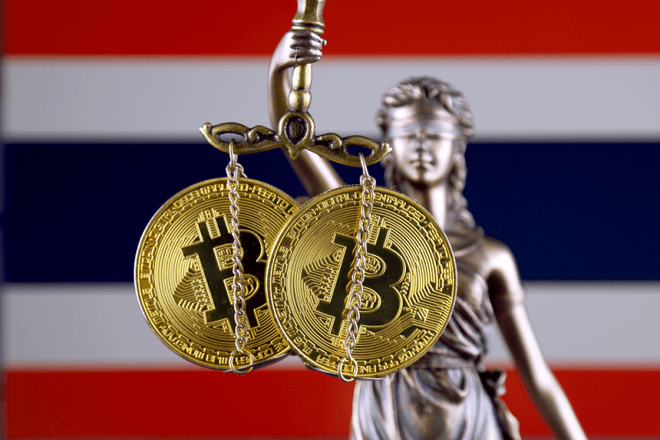Advertisement
Advertisement
Bank of Thailand Warns Against Crypto Trading
Published: Dec 9, 2021, 09:16 GMT+00:00
The apex bank in Thailand has warned commercial banks in the country against crypto trading activities.
As more Asian countries seek to curb crypto trading activities within their territory, the Bank of Thailand has stated that commercial banks in the country should not be directly involved in crypto trading. This statement was made by the central bank’s senior director Chai-Anant on Tuesday.
Commercial Banks in Thailand Shouldn’t be Trading Crypto
According to the apex bank, the risks associated with crypto assets volatility are enough to discourage commercial banks who deal with customers’ money from getting involved.
The BoT is also concerned about businesses that accept cryptocurrencies like Bitcoin as payment for goods and services. Chai-Anant stated that the volatility of digital assets and the risks of money laundering, data leakage, and cyber theft make them risky for consumers and merchants.
Last week, another BoT senior director, Sakkapop Panyanukul, warned businesses against accepting crypto. According to him, the acceptance of other currencies will affect the Central Bank’s ability to regulate the economy. He described tokens without any asset backing as blank coins.
Despite the growing popularity of digital assets among individuals and institutions in the country, the country has been looking to impose strict regulations on cryptocurrencies.
Thailand’s Crypto Adoption Strides
Lately, commercial banks in the country have been investing in local crypto exchanges. In November, the oldest bank in Thailand, Siam Commercial Bank, announced that it would acquire a 51% stake in Bitkub, the largest crypto exchange in the country.
In addition, another crypto exchange, Zipmex, raised $1.3 billion in funding from one of the largest lenders in the country, the Bank of Ayudhya.
The adoption of cypto assets has continued to increase in the country, with real estate developers and retailers now accepting these digital coins as payment options. Presently, the country has eight licensed exchanges and data from the Securities and Exchange Commission shows that crypto transactions were to the tune of 205 billion baht ($6 billion) in November.
The BoT warnings contradict the stance of the Tourism Authority of Thailand, which has been portraying the country as a crypto-friendly nation and encouraged those with crypto assets to visit the nation. Given how dependent the country’s economy is on tourism, the central bank’s stance is likely to harm the efforts to bring more tourists into the country.
About the Author
Oluwapelumi Adejumoauthor
Oluwapelumi is a firm believer in the transformative power power Bitcoin and Blockchain industry holds. He is interested in sharing knowledge and ideas about how the industry could play a pivotal role in the emerging financial system. When he is not writing, he is looking to meet new people and trying out new things.
Advertisement
